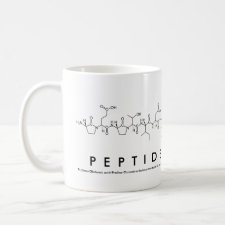
Authors: Kushida N, Saito K, Oyama T, Tomoi M
Article Title: Development of molecularly imprinted catalysts using various interactions from N-acryloylpeptide derivatives.
Publication date: 2005
Journal: Polymer Preprints, Japan
Volume: 54
Issue: (1)
Page numbers: 1888.
Abstract: For the use of polymers imprinted by transition-state analogues (TSAs) as Michaelis-Menten type of catalysts, it would be important that the resultant catalytic cavities have some pliability which enables induced fitting. In this study, N-acryloylpeptide derivatives were synthesized as the monomers having various interactions. Polymerizations of these monomers with a small amount of crosslinker in the presence of p-iodophenyl methylphosphonate, which is regarded as TSA for hydrolysis of p-nitrophenyl acetate, afforded the low-crosslinked molecularly imprinted polymers in good yields. The obtained polymer catalyst with 20mol% crosslinking hydrolyzed p-nitrophenyl acetate 2.5 times and 6.3 times faster than the non-imprinted polymer and the blank solution, respectively. The imprinted catalyst has good substrate selectivity, and the hydrolysis with the imprinted catalyst was retarded by TSA. It was also shown that the catalytic activity is increased by cooperative effect of functional groups
Template and target information: p-iodophenyl methylphosphonate, TSA



Join the Society for Molecular Imprinting

New items RSS feed
Sign-up for e-mail updates:
Choose between receiving an occasional newsletter or more frequent e-mail alerts.
Click here to go to the sign-up page.
Is your name elemental or peptidic? Enter your name and find out by clicking either of the buttons below!
Other products you may like:
 MIPdatabase
MIPdatabase









